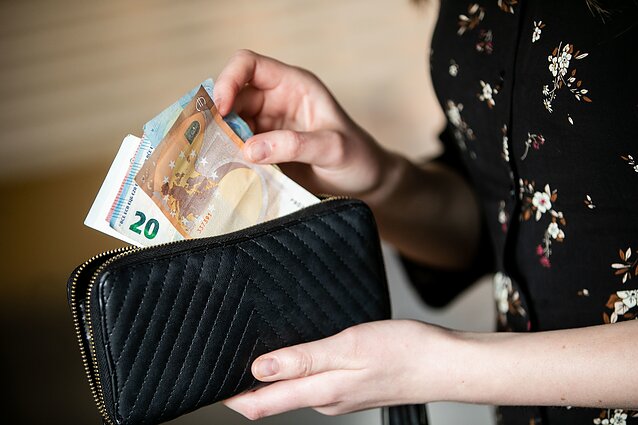
LRT.lt reports that in 2022, excise duty on tobacco products and alcohol will increase in Lithuania, but those earning the minimum wage will see their income rise. What other changes are coming in 2022?
The minimum monthly wage before tax will increase from 642 euros (468 euros after tax) to 730 euros (almost 534 euros after tax). One euro is equivalent to $1.44 CAD or $1.13 USD. The hourly minimum wage before tax will rise from 3.93 euros to 4.47 euros. This is one of the largest minimum wage increases in Lithuania in a decade. It will affect about 127,000 workers earning the minimum wage or less.
Non-taxable income will increase from 400 to 460 euros. It will apply up to the average wage (1,678 euros) before tax. The gross monthly income for those earning the minimum wage will increase by about 65 euros, 13 euros for those earning 850 euros on paper, and 11 euros for those earning 1,000 euros before tax. The previous level of non-taxable income (400 euros) will apply to those earning more than the average wage. In 2022, there will also be a proportional increase in the non-taxable income of people with disabilities. For those with a moderate or mild disability, the non-taxable income will increase from 600 to 690 euros, and from 645 to 740 euros for workers with a severe disability.
Until now, employers have been able to pay their workers in cash. Beginning in 2022, wages, daily allowances, and reimbursement of work-related expenses will have to be paid by bank transfer to avoid abuses.
Excise duties on beer, wine, ethyl alcohol, and various types of cigarettes and tobbacco products, including e-cigarette liquids, will increase as of January 1, 2022. Consequently, the price of a packet of cigarettes will increase by 17 cents, while a pack of tobacco will rise by 27 cents. The price of cigarettes last year was over 4 euros.
A half-litre can of beer will cost 2 cents more, a half-litre can of spirits – 32 cents more, and a half-litre bottle of wine or other fermented beverages (over 8.5 percent ABV) – 10 cents more. The price of craft beer should decrease slightly because small breweries will be subject to a 50 percent lower excise duty per 10,000 hectolitres of beer produced annually. Excise duties on all other beers will increase by around 10 percent from 2022, while excise duties on wine and other fermented beverages up to 8.5 percent ABV will rise by around 19 percent. The increased excise duties on alcohol are estimated to add 17.3 million euros to the state budget. An additional 12 million euros will be collected from increased excise duties on tobacco products.
In 2022 the average pension will increase from 414 to 465 euros, reaching 544 euros in 2024. The average pension with the required length of service will rise from 441 to 489 euros in 2022, reaching 576 euros in 2024. There are about 600,000 pensioners in Lithuania. Over 4.2 billion euros from the state budget will be allocated to pensions next year, an 11.9 percent increase from the year before.
The single pensioners’ benefit will be paid automatically without application requirements. It is estimated that nearly 280,000 people with disabilities and single pensioners will be entitled to the benefit of 32 euros from the start of 2022.
Child benefits will also increase, albeit minimally. The universal child benefit will rise by 3.5 euros to 73.5 euros, while large, disadvantaged families or families raising children with disabilities will receive a child benefit of almost 117 euros. The care allowance will also increase for the first time in more than two decades. The amount of the allowance will be differentiated according to the child’s age and needs (218 euros for children up to 6 years old, 252 euros for children aged 6 to 12, 252 euros for children aged 12 to 18, and 273 euros for children with a disability, as well as for former foster children up to the age of 24 who are studying.)
More people will receive compensation for rising heating prices, as the amount of State Supported Income will double. An additional 15,000 people will be entitled to a heating allowance next year, bringing the total number of people receiving compensation to about 110,000.



























